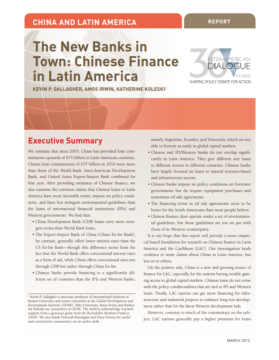Hugo Stay Home
Hugo Chavez, the Venezuelan president, has clearly been enticed by the Libyan drama, where his longtime friend and ally, Muammar al-Qaddafi, is under siege from rebel forces.
This post is also available in: Español
Nicolás Maduro and his allies are at a critical juncture with two potential paths: either continue to use violence to maintain power or negotiate a way out.
Circumstances are likely to get worse before they get better. But descent into a full-fledged dictatorship is not inevitable. It is in the United States’ interest to work with partners in Latin America and the united Venezuelan opposition to ensure a transition of power in the coming months.
Since the July 28 election, the Maduro regime has turned to its tried-and-true strategy of repression and deceit. Ignoring international demands for transparency, Maduro has failed to back his allegation of a “terrorist attack” on the electoral system. The official results declaring Maduro as president remain unverified.
Instead, Maduro has involved the Supreme Court — a body notorious for its lack of independence, which does not even have the legal authority to review the voting tallies. The court’s validation of the dubious results from the also-discredited National Electoral Council is a stark example of using undemocratic institutions to legitimize electoral fraud and extend Maduro’s grip on power.
[...]
Hugo Chavez, the Venezuelan president, has clearly been enticed by the Libyan drama, where his longtime friend and ally, Muammar al-Qaddafi, is under siege from rebel forces.
Estimates of the volume, composition, and characteristics of Chinese lending to the region since 2005.
Is the Venezuelan government likely to comply with the IACHR’s ruling or will it uphold the ban?
 Txeng Meng / Flickr / CC BY-NC 2.0
Txeng Meng / Flickr / CC BY-NC 2.0
